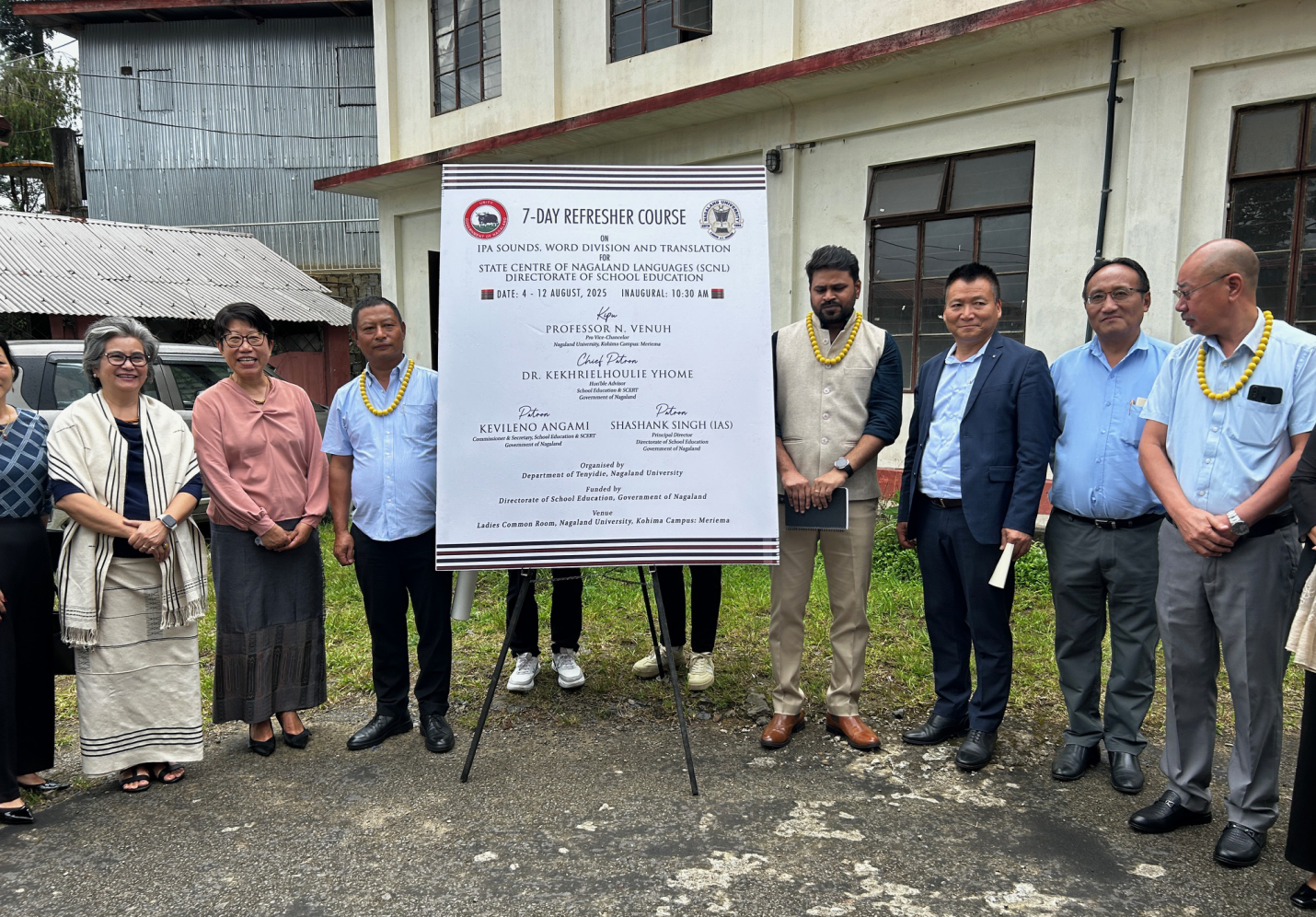A 7-day Refresher Course on IPA Sounds, Word Division, and Translation—designed for members of the State Council of Nagaland Languages (SCNL), began on August 4 at the Ladies Common Room, Nagaland University Kohima Campus (NUKC). Organised by the Department of Tenyidie, Nagaland University, and funded by the Directorate of School Education, the programme aims to build stronger linguistic foundations among language educators and researchers across Nagaland.
Speaking at the inaugural session, Prof N Venuh, Pro Vice-Chancellor of NUKC, described the course as a timely opportunity, particularly in light of the changes introduced by the National Education Policy (NEP).
Stating that language is the most important component of education system, he said people who are coming for the refresher course hold a very important position for the changes in our society.
Chief Patron of the event, Advisor for School Education and SCERT, talked about preservation in a multilingual state like Nagaland. Stressing that identity and language are crucial for communities without a written script, Dr Yhome underscored that the Department of School Education is in touch with various tribal literature boards. He mentioned that Tenyidie is one of the few languages in Nagaland with academic programmes up to the Doctorate level.
Highlighting about the works of the department, he said it is working to develop tribal language textbooks, but efforts remain in the preliminary stage and face significant challenges, including translation difficulties. He said while the National Education Policy (NEP) recommends that children be taught in their mother tongue, however, its implementation remains difficult.
Download Nagaland Tribune app on Google Play

He mentioned that the Constitution of India recognizes only 14 languages, despite there being more than 20,000 languages in the country on the national scale. He said in Nagaland 18 languages are officially recognized.
“We expect the child to at least hear the mother’s language spoken to them. That gives comfort. But the moment they enter school, they are taught in English and that scares them. We are at a crossroad. Even within one tribe, villages use different terms for ‘mother’. If we don’t act now, we may lose many of these languages in a single generation,” he added.
The event also featured remarks from Kevileno Angami, Commissioner & Secretary, School Education & SCERT, and Shashank Singh (IAS), Principal Director, Directorate of Education, both reaffirming the government’s commitment to strengthening indigenous language education.
The programme began with an invocation by Dr Khrüvolü Keyho, followed by a welcome address from Dr Petekhrienuo Sorhie, Associate Professor. The session was chaired by Dr Mimi Kevichüsa Ezung, Head of the Department of Tenyidie, and concluded with a vote of thanks from Dr. Ketohkhrienuo Belho.
The refresher course will continue till August 12, focusing on phonetics (IPA), word division rules, and applied translation techniques, with support from institutions such as Ura Academy and prospects for future collaborations.

